The ACLU’s Chase Strangio on the new documentary “The Fight”
Strangio also talks about being a public face for the trans community, and why America can't survive four more years of Donald Trump

For Chase Strangio, the journey to self-acceptance and coming to terms with his gender identity was part of a long-term, tumultuous, internal struggle.
“I had a very deep fear of rejection and internalized shaming,” says the deputy director for Transgender Justice at the American Civil Liberties Union’s LGBT & HIV Project. “Which is funny, given how publicly I live my life now.”
For a while, even as an adult, Strangio attempted to keep two separate lives: one in which he was recognized according to his assigned sex at birth, and one in which he fully embraced his gender identity. Slowly, those two lives combined and he became more comfortable living as an out trans man. But he remained hesitant about putting his life up for public consumption.
That changed after Strangio became involved in the fight over legislation in South Dakota, passed in 2016, that would have banned transgender students from restrooms, locker rooms, and other spaces consistent with their gender identity. Strangio says something “snapped” inside him at the time. He decided he would no longer shy away from being public about his trans identity.
“From 2016 to now, I just went all in,” he says. “Part of that for me has been to show my full, messy humanity. I don’t want to be a sanitized version of a trans person. I want to be a full person who has a small messy apartment that I try to manage raising a kid in…. I’m trying to take care of things, and I don’t always do the perfect job, and I make mistakes. [But] I’m learning, and I want people to come along on that journey with me.”
Nowhere is this authentically human side captured more accurately than in The Fight, a cinema-verité documentary that profiles Strangio and several other lawyers working for the ACLU on some of the most high-profile court cases challenging the Trump administration’s more galling policies and directives.
Specifically, the film chronicles cases involving Trump’s proposed Muslim ban, the separation of immigrant children from their parents, abortion access for undocumented minors who have been raped, a proposed Census question on citizenship, and the Pentagon’s ban on transgender military members seeking to serve in the Armed Forces according to their gender identity.
We see the ACLU lawyers not only at work and in transit, but in hotel rooms practicing for oral arguments, toasting victories with cheap wine as they travel on Amtrak, and at home interacting with their families, including a memorable and heartfelt scene where Strangio’s child plays on the floor while he is trying to work from a laptop on a small table in the living room.
The segments revolving around the fight against the transgender military ban focus heavily on the working relationship between Strangio and Josh Block, a gay man and senior staff attorney at the ACLU with whom Strangio has worked on a number of cases, including Obergefell v. Hodges, which saw marriage equality legalized in the United States; a lawsuit involving Gavin Grimm, a transgender youth who sued his Virginia school system after it barred him from using the boys’ restroom; and a currently active case in which a group of cisgender female student-athletes from Connecticut are suing to overturn a policy allowing transgender athletes to compete according to their gender identity.
“When I argue on behalf of people fighting discrimination based on sexual orientation, I can speak as a member of that community,” notes Block. “But when you’re fighting on behalf of someone who’s discriminated against because they’re trans, it’s always problematic when your decisions, in both legal strategy and around framing and storytelling, are made by cis people.
“I really relied on Chase for his friendship and support during that process. In no way is Chase a stand-in for everyone in the trans community. But that doesn’t change the fact that it’s crucial to have a friend and colleague who can support you and be a teammate.”
Elyse Steinberg, one of the three director-producers behind The Fight, says the chemistry between Block and Strangio jumped off the screen when she, Eli Despre, and Josh Kriegman began following the various ACLU lawyers around with cameras.
“Josh and Chase are exactly as you see them in the film,” she says. “They have an amazing friendship and a lot of witty banter between the two of them. But underneath is this deep desire to fight injustice that they share. They are really funny and they’re deep and soulful people. And every day that I got to spend with them, I said to myself, ‘I can’t believe this is my job. I get to hang out with these incredible people doing extraordinary things.'”
“I think one thing that we look for in subjects is people who can’t help but be themselves wherever they are. There’s no artifice to them,” Despre adds. “You’re always looking for that visceral spark of character when you see someone on the screen and they’re just profoundly honest and open with themselves and they can’t help it…. I think it makes some good attorneys, too. I like that when they advocate, you can tell that they believe in the arguments that they’re making.”
Strangio acknowledges that the LGBTQ movement has largely been forced into a defensive crouch, in part due to the sophisticated degree of organizing and coordination by LGBTQ opponents and their political allies. But he says LGBTQ advocates need to focus on a much longer-term fight for transformative justice on behalf of marginalized communities.
“We need to cultivate survival, share resources, change policies, and imagine a more transformative and just system than the one that’s ever been in place,” he says. “I think there’s ways that we can do better. I think we’re starting to see that, and this moment is a chance for us to look at our collective responsibility to care for each other.
“To me, it’s a matter of how willing are we to completely throw down and say, ‘I am going to risk myself and my power in order to protect others. And that’s going to look a lot of different ways, but it’s going to be relentless, and that’s my approach to the work.”

METRO WEEKLY: What was your childhood like?
CHASE STRANGIO: I grew up outside of Boston in a suburb, and overall I had just a lot of access to a great public education. In many ways I don’t actually remember a lot of things about my childhood. I had all the things that one would expect would make a young person feel safe, supported, and happy, but I think anyone who knew me would have said that I had an internally dark struggle going on that I couldn’t quite identify. My outlet for everything was to find ways to excel academically and focus on certain types of achievement as a metric of worth, because I don’t think I really understood myself as a full human being. I was definitely repressed. I didn’t come out as queer or trans until after high school. I think that was really just sort of a lingering challenge for me.
MW: What was your family like? In The Fight, we see your brother is a veteran, and the two of you make a joke about your dad being conservative and sending your brief to Breitbart.
STRANGIO: My parents split up when I was in high school. My father is incredibly conservative. He was a George W. Bush supporter and is a very aggressive, as far as I know, Trump supporter — certainly he was at the time of the 2016 election. During large periods of my life, I didn’t speak with him, and when I was coming out as queer in early college, around the 2000 and 2004 elections, when LGBTQ issues were very much front-and-center in the public conversations around the election, I reached out to my father and urged him, “Please don’t vote for George W. Bush. If you have to not vote at all, then don’t vote, you’re in Massachusetts. It’s really important to me to feel like you’re seeing that this is important to me.” He just had a very different way of understanding politics as disconnected from personal experience. He wasn’t, as far as I know, very conservative when I was much younger, and my mom is incredibly progressive. So I think I had a fragmented sense of self that was the result of deep repression and the messages that one receives from society, but also the way that I felt disconnected from my parents, particularly my father.
My brother and I, though we weren’t close when we were younger, are incredibly close now. As far as Newton goes, we’re a somewhat odd family, where he was in the military, I was this big queer trans person. Our parents split up, and there was just ways in which we didn’t fit exactly the mold of our community, even though we had a lot of ways that we were completely normative and had access to power as white people, as people who had access to formal education and the public school system in Newton, which is incredible.
After high school, I ended up not going to college right away, even though I had planned to, and I was struggling with a lot of different things, including not knowing how to find myself, struggling with addiction, struggling with being lost. I took a year off and ultimately ended up going to Grinnell College a year after I graduated from high school.
I think, even though at that point I sort of understood myself as queer, I still was trying to understand what it meant to incorporate a sense of gender that was different from even what I was seeing in the queer community. This was 2004. There was still almost no example of trans people in my immediate life, in representations on television or anywhere, even though I was desperately searching for things. All I had as a reference point was Brandon Teena, who was murdered. That didn’t feel like a safe place to find a sense of home in an identity, when the thing that you know of the person is that they experienced so much violence. So that was all part of the process of coming out of childhood and adolescence and figuring out how I could be an adult in the world. It took me a while to get grounded and figure it out.
MW: When did you come out to your parents?
STRANGIO: I don’t know that I’ve ever really come out to my family. It was very obvious that I was queer at a certain point. I don’t know that we had sit down conversations about it, although it sort of came up directly. I had a very deep fear of rejection and internalized shaming, which is funny given how publicly I live my life now, though I still carry that. I was out in some way, but I can’t pinpoint a linear trajectory in which I came out to myself, and came out to my family and sat them down, and was like, “This is who I’m going to be and this is what my gender is going to be.”
It wasn’t until law school that I came out to myself as trans, and even that wasn’t a linear process. It was more just the dynamic experience of understanding yourself in the world. I changed my name and started to affirm my sense of a gender that was different than my assigned sex at birth. But even then, for years, I kept my public Chase identity separate from other aspects of life where people knew me as my former name. There was even a period of time where I had two separate Facebook accounts. It was completely untenable.
I knew I couldn’t live as a cis person and have a career at all because it was impossible for me to function in a gendered space like the law, particularly when you start to think about how you have to present in a theatrical context of a courtroom or some other type of hearing, or even in an exchange with clients. You’re constantly being seen. So if you are not able to claim your truth and then have that reflected back to you, it’s just a perpetual way in which you’re letting yourself down, and that was my experience.
When I graduated from law school in 2010 and began to practice at the Sylvia Rivera Law Project, which is an organization that works with trans people, and most of my colleagues were trans, I think I really started to settle in to the fact that I am confident in myself as a trans person.
I’ve ended up living a very public trans life that I didn’t fully anticipate. That has been, in and of itself, an interesting experience that I didn’t map for myself with any sort of foresight, but continue to think about as I understand what is my role as a trans person in public face and public advocacy.

MW: In terms of your work at the ACLU, which is highlighted in The Fight, we catch some candid moments with you working from home, and you and Josh Block talking in a car. The two of you have an interesting conversation about what representation looks like.
STRANGIO: I think one of the complex things about me in The Fight, which I don’t know if it is true of any of the other lawyers, is that — and this is true of my work in general — there is both the substance of the work that I do and then there’s the fact that it is me doing it. Certainly there are so many trans lawyers who came before me, there’s trans lawyers working alongside me and there will be many trans lawyers, thankfully and hopefully, that come after me. I still think there is this sense in which the transness is situated as either such deviance or such victimhood that we don’t get to see a trans person being trans in the world in a multitude of ways, which is the way in which our humanity will become more realized. So my decision to be a part of the film — and I was somewhat hesitant about it — was in part to continue the work that I do of being honest about what it means to show up as trans in certain spaces when you’re defending trans existence and defending trans people’s rights to have basic access to public space, or healthcare, or survival, or employment.
You can even see in the film the way in which the hate that’s directed at me is still deeply personal. It’s not “Oh, the ACLU is this awful institution,” it’s “Oh, you’re an ugly faggot who is disgusting.” Remarks on my physical appearance, telling me that I’m not real, telling me that I’m disgusting. You learn to compartmentalize, you learn to just stop and stay grounded, and you know who you are and feel good about who you are, and that’s its own separate process.
What’s interesting for me, in rewatching the film, a lot of that footage is from three years ago. Josh was the lead on that case, and I was very much there to be a co-counsel and part of the team, but that was not one of my big cases. Yet still I think we have to sort of contend with, “What does it mean to show up in a space if you’re this secondary trans lawyer? Can you ever just be a lawyer who happens to be trans? Is your transness always integral to your profession or some other way in which you’re existing in the world?”
Obviously, there’s that scene in the film where I’m like, “Why don’t I just get to develop my skills? Why can’t I just be on a path towards professional development that this person could have?” And it’s just not realistic, because so much of the work is about building infrastructure to be capable of doing accountable, effective trans work, and when you’re the first out trans lawyer at an organization, then you inevitably are going to be holding a particular and very unique type of labor, and that was my experience.
MW: One of the cases you’re working on, the Connecticut case about transgender student-athletes, has made a lot of headlines, and we’re now seeing a slew of bills on that topic being introduced in various state legislatures.
STRANGIO: I think what we have to understand is that in 2016 after marriage equality, our opponents, strategic as they are, well-funded as they are, quickly pivoted and started attacking trans people in a multitude of ways. That’s when we saw the proliferation of anti-trans bills. In state legislatures we saw efforts to put anti-trans policies and proposed laws and even constitutional amendments on the ballot in many states. At that point, it was very much focused on restrooms and this idea that people would not be safe in restrooms if trans people could have access to them, which we knew to be preposterous. Trans people have been going to the bathroom. We trans people are the ones who are unsafe in restrooms, but this was the discourse that took hold in 2016.
By 2018, our opponents had largely lost. They kept losing in court. The bills weren’t passing. After HB 2 [in North Carolina] they did not gain traction with that. They lost at the ballot over and over and over again, culminating in the resounding defeat in Massachusetts in 2018 in the November election. They then quickly pivoted to two things.
First, they pivoted to athletics. They started to change the narrative to “If we recognize trans people fully as who they are, then cis women will be harmed in this other way,” and that way is in the context of sports. They picked up on the story of our clients in Connecticut who are two trans girls. They’re young black women who are already targeted for so much discrimination and abuse, particularly in the context of Connecticut, where you have many places that are deeply segregated. So you have these two successful black runners who are trans, and the firestorm over the fact that they are having some successes, and you end up having a whole entire campaign around the fact that they’re “really” males and starting to scrutinize their bodies — remember that these are children. And that becomes the pivot, beginning in 2019.
You can see it play out in the Equality Act hearings that happened in 2019, where the bill is still pending in Congress. It’s a bill that would expand civil rights protections for the LGBT community but also all civil rights protections. Then at the hearings in the House, the entire focus of the opponents of the Equality Act in the first hearing was sports. They brought in three witnesses essentially to talk about how if we protect trans people, then women’s sports will go by the wayside, even though you have the National Women’s Law Center, Women’s Sports Foundation, all of these historically-leading groups that do women’s rights work, including in the context of Title IX and athletics saying, “No, no. That’s not true.” This discourse really takes hold in 2019.
By the beginning of 2020, it is everywhere, and you have at least 17 bills in state legislatures that would attempt to restrict access to sports for trans people, and not just try to impose onerous medical restrictions, but wholesale bans on participation for trans athletes in the K-12 context, and in some context, at the collegiate level.
MW: You mentioned a second prong of attack against transgender rights. What is that?
STRANGIO: The other thing that states were doing in the 2020 legislative session was introducing these bills criminalizing the provision of healthcare for trans minors. So these bills were a wholly new tack, where states were proposing felony bans on the provision of healthcare. Mostly regulating providers, so it would make it a crime for a provider to continue to provide treatment or initiate treatment for a trans person under 18, or in some cases, 19. None of those passed but they did get a lot of traction, and again, some of them were essentially killed just by virtue of COVID.
MW: You’re also lodging a complaint targeting a bill in Idaho that bars transgender female athletes from competing according to their gender identity.
STRANGIO: Idaho passed HB 500, which was signed by the governor on March 30, and we sued. The Idaho bill is similar to the relief that the plaintiffs are seeking in Connecticut. It would essentially bar trans athletes and sort of entrench in law a definition of “biological sex” that is limited to characteristics that people who are non-intersex are born with at birth, mainly chromosomes, reproductive anatomy, which is not defined in endogenous testosterone.
In that case, [Alliance Defending Freedom] has sought to intervene, and in their intervention papers are making the affirmative claim — which they also made at the Supreme Court [in the Bostock/Stephens case] — that it’s actually in trans people’s best interest to be forced to lived consistent with their assigned sex at birth, and that being trans is, in and of itself, harmful. They go so far as to say that our client Lindsay has no injury and no harm, because allowing her to be trans is the harm. So these are some really extreme arguments that are being presented in these cases.

MW: How do these cases square with the recent Supreme Court decision that trans people are protected by federal civil rights law?
STRANGIO: I think there’s two arguments that we’re going to see. One is that ‘Yes, trans people may be covered by the law,’ but they’re arguing that there is a countervailing concern in a certain context. I also think that neither the United States nor ADF are accepting Bostock for what it says. I think they’re continuing to suggest that Bostock has no bearing on these contexts, which I think is a complete misreading of the law and that decision, but it is nonetheless where they’re going with it.
The other thing that I think we have to be incredibly vigilant about is the fact that Bostock and the other holdings around statutory protections are just that. They’re holdings on the scope of the statutory protections that Congress have enacted. Now, we’ve seen this in the religious liberty context, where our opponents are arguing that there are countervailing constitutional rights that limit the application of those protections. So that would be sort of the Masterpiece Cakeshop-style argument, that, “Yes, this generally applicable law does include LGBTQ people, but I have a federal constitutional right not to follow that law.”
So I think what we’re also going to see in the context of trans people, separate and apart from arguments about religion, is “I have a countervailing constitutional privacy right or other right not to share space with trans people.” We’ve already seen this in a multitude of cases involving restrooms and locker rooms where cisgender plaintiffs say that their constitutional privacy rights are violated by a policy that protects trans people. That I think is a completely frivolous and not an actionable claim, and no court has recognized this as such. However, a court could recognize it as such, and if they did, if a court were to find that cisgender people have some constitutional protection not to share a space with trans people, that would cut into any statutory protection at the state, federal, or local level. So I think that’s where we’re going to see some of the arguments progress.
Certainly Bostock changes the calculus in many ways. For example, in the Connecticut case, the United States has filed a statement of interest saying trans people are not covered under Title IX. To me, that is something that there’s just no way they can credibly file post-Bostock. We will see. I mean, I wouldn’t put it past them, but the pre-Bostock position of the federal government, which is that sex discrimination protections under federal law do not cover trans people, cannot be reconciled with the recent Supreme Court decision.
MW: If Trump gets reelected and another Supreme Court seat opens up, how critical is that going to be for the LGBTQ movement, and even the larger progressive movement in general?
STRANGIO: If Trump gets reelected, I think there’s just so many catastrophic things that will happen. We eked out of this last term with some critical but narrow and limited wins that will not survive another four years of Trump.
So for example, with respect to abortion, as much as Roberts voted with the liberals, I’m sorry to say that there’s a map for how states can continue to chip away at abortion. When it comes to ending DACA, it was all about that the reasons given weren’t adequate, but the Trump administration could go back and give new reasons and do it a different way, and there is a blueprint for that. We know that the Trump administration is invested in very particular types of harms, and we held back some of those harms through the courts over the last four years.
I do not think that there’s any chance of stalling those harms for another four years, and the makeup of the federal judiciary is part of that, because it’s not just about the Supreme Court. That’s huge, but it’s the entire federal judiciary. In four more years, a majority of all circuit court judges are going to be Trump appointees, and that means that we are not going to have a true separation of powers that we need to ensure and protect people’s rights from encroachment by the other branches of government.
We have to be tuned in to the fact that, in many ways, this election is life or death, and part of that is the federal judiciary. Part of that is the actions taken by this administration. Part of that is COVID. We’re living in a time of great uncertainty and multiple types of peril, and many people are living in this moment, having experienced trauma, violence, and peril for generations. How much more can people be expected to withstand? Why has the Right been more effective around organizing around the court? I think it’s similar to what I said about the state legislative and school board work. The right have gotten more out of the courts than the left. I think you can look to the need for civil rights protections. We need the courts, we need the courts as a counterbalance. We look to the courts so much in the Trump administration, and yet there’s such a limit to what the courts can do.
I think if you’re looking at a set of movements that are trying to effectuate change, it’s hard to invest in a system that you know is ultimately actually harmful as well, and I think we’re holding a different type of nuanced discourse right now because of how much harm is on the horizon. So you’re seeing the progressive left also talking about the courts in a different way.
MW: What will be the next LGBTQ issue to come before the courts?
STRANGIO: The justices have already taken up the Fulton case, the Catholic Social Services versus City of Philadelphia case, which is about government contracting with entities that discriminate. So there’s going to be tons of questions coming up about the scope of constitutional rights to engage in discriminatory practices. We’re going to have to pay attention to that. I think the sports cases are absolutely critical. The impact extends far beyond sport itself, into all of the ways in which our bodies are regulated under the law and therefore in life.
We’re going to have to pay a lot of attention to the expansion of surveillance, in the post-COVID world, sort of “How are we going to have access to healthcare, what do we have to give up in order to protect our bodies and our intimate contact?” It’s a really different context from the context of HIV, but there’s a lot to be learned from the ways in which privacy was curtailed and people were criminalized, and I think we have to be really vigilant. That’s particularly true for LGBTQ people, and people who are experiencing homelessness or are engaged in criminalized economies.
There’s just so much work ahead and we don’t exactly know what it’s going to look like. We don’t even know what the world is going to look like in the next few weeks and months, but I think the beauty of it all is that we have so many incredible people who have done so much incredible thinking to draw from and connect with.
I hope I can continue to be a part of the collective organizing for more expansive ways that we can live and thrive in this world as trans people, as human beings, as people who have been targeted by the systems of white supremacy and patriarchy and ableism and xenophobia. There is so much work to do, and there are so many incredible people who have been and are still doing that work.
The Fight is scheduled to be released on July 31 in select theatres, on Apple TV, Google Play, Prime Video, and other digital stores, and on cable on demand. For more information, visit www.fightthefilm.com.
Read More:
Path to Victory: Annise Parker on helping elect LGBTQ people across America
Laverne Cox on Netflix doc Disclosure, dating in Hollywood, and (begrudgingly) voting for Joe Biden
Pennsylvania mayor condemns transphobic meme attacking transgender Secretary of Health
[bookshelf id=’2′]
Support Metro Weekly’s Journalism
These are challenging times for news organizations. And yet it’s crucial we stay active and provide vital resources and information to both our local readers and the world. So won’t you please take a moment and consider supporting Metro Weekly with a membership? For as little as $5 a month, you can help ensure Metro Weekly magazine and MetroWeekly.com remain free, viable resources as we provide the best, most diverse, culturally-resonant LGBTQ coverage in both the D.C. region and around the world. Memberships come with exclusive perks and discounts, your own personal digital delivery of each week’s magazine (and an archive), access to our Member's Lounge when it launches this fall, and exclusive members-only items like Metro Weekly Membership Mugs and Tote Bags! Check out all our membership levels here and please join us today!










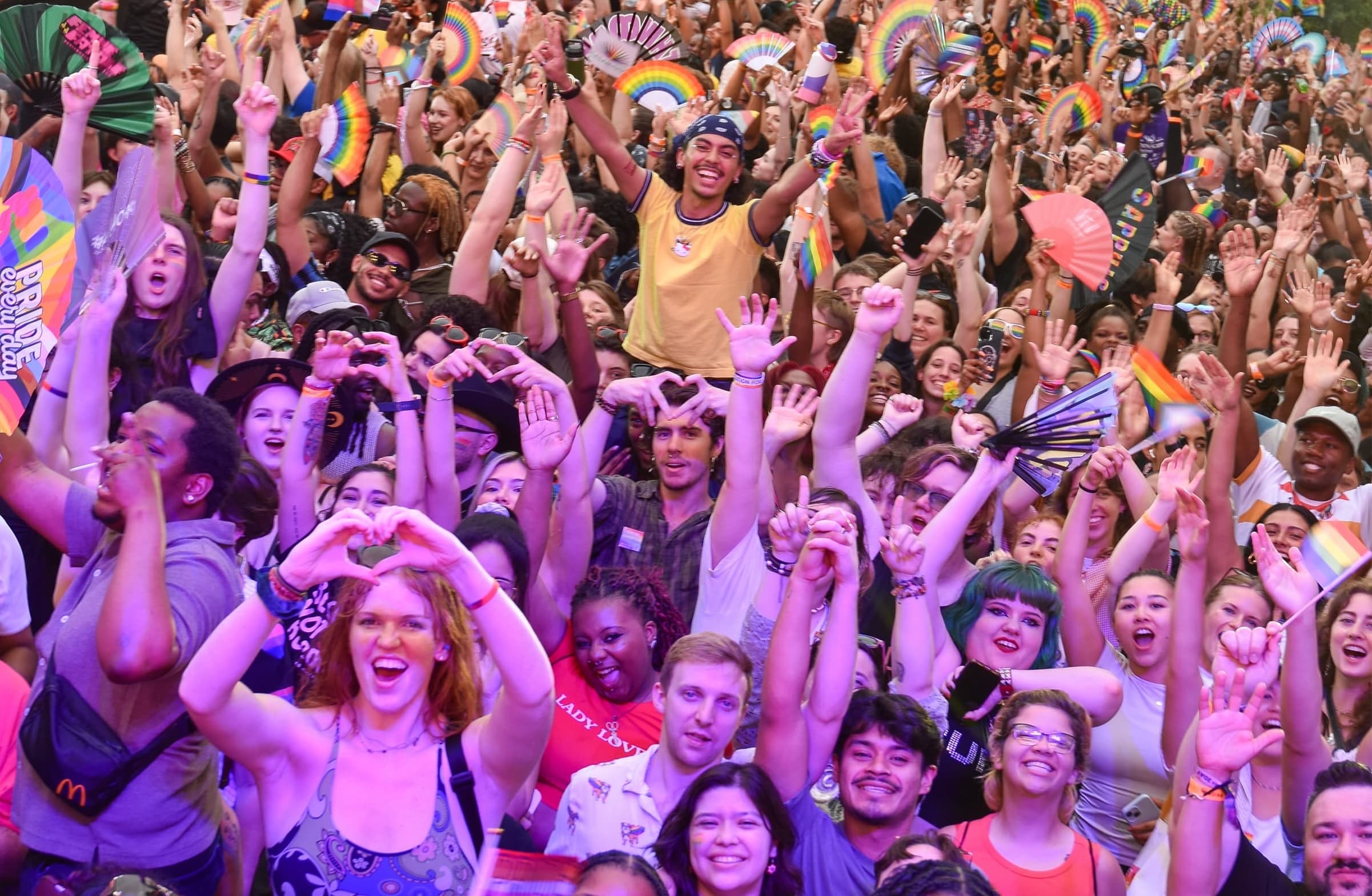
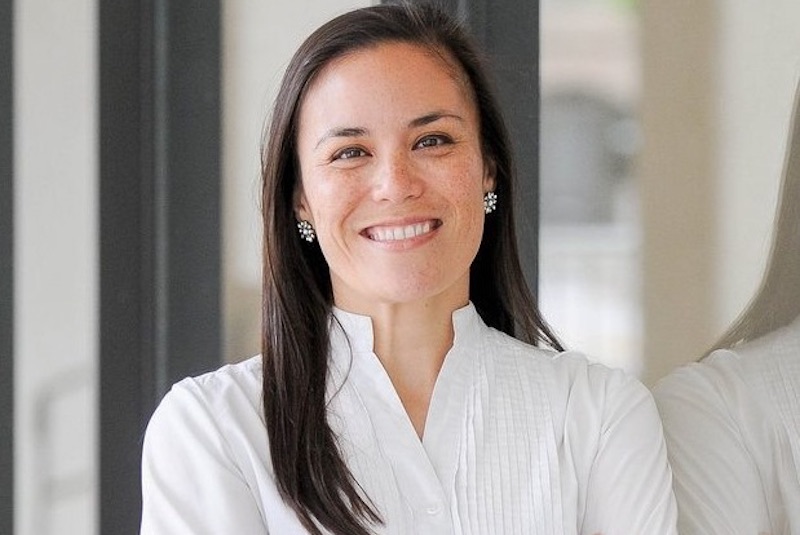















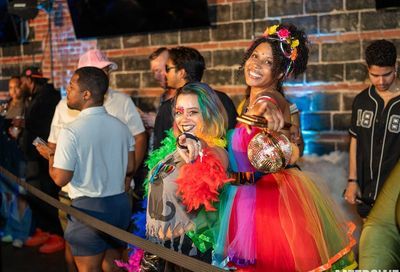
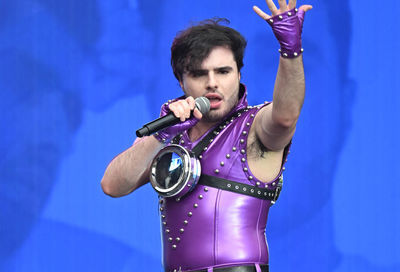
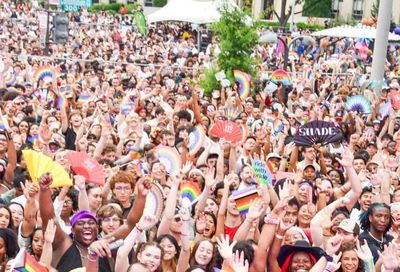
You must be logged in to post a comment.